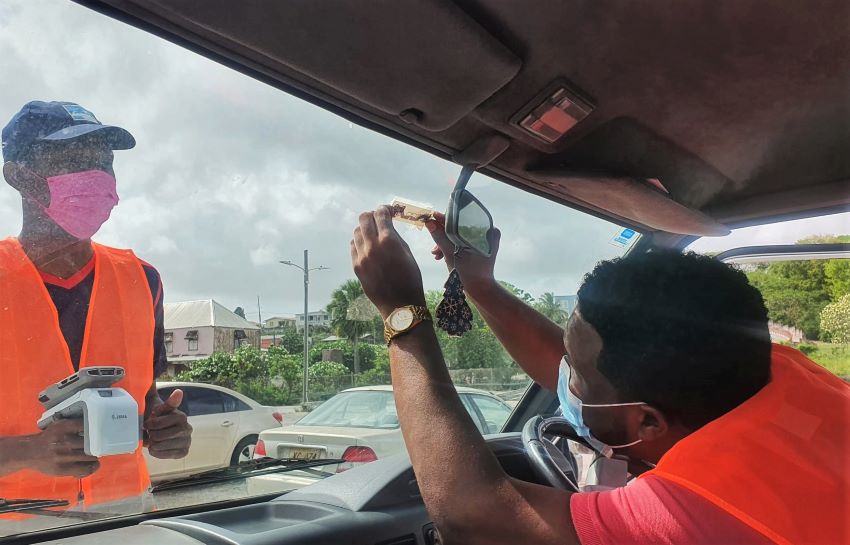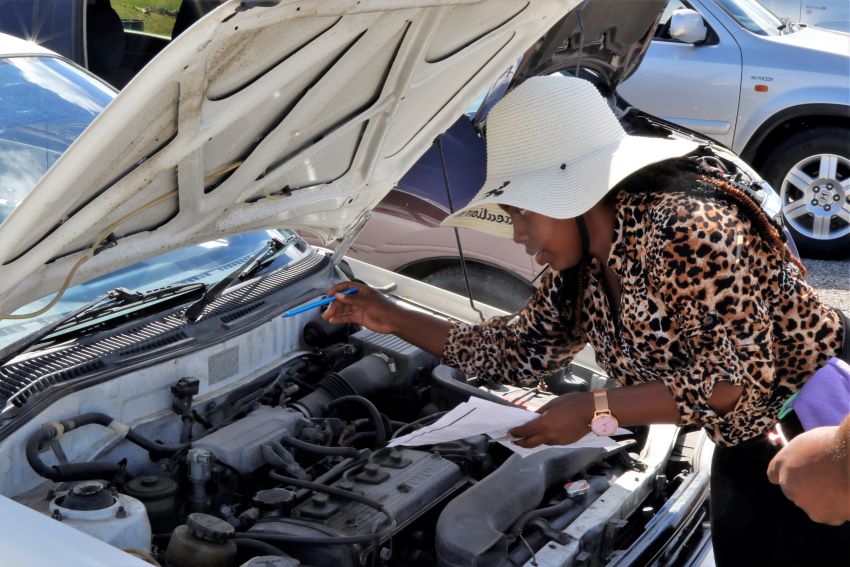
Over 5,700 vehicles have already been tagged under the pilot phase of the Barbados Licensing Authority’s (BLA) Electronic Vehicle Registration (EVR) programme.
This was disclosed by Acting Prime Minister and Minister of Transport, Works and Water Resources, Santia Bradshaw, who emphasised that the EVR programme is a major project which requires technical upgrades, infrastructural installation, and amendments to the Road Traffic Act, CAP 295.
While amendments are being completed, the BLA has commenced a parallel pilot process for the phased registration and tagging of specific categories of vehicles.
The pilot phase of the EVR programme began with the registration and tagging of state-owned and emergency vehicles in May 2022 and was extended to include public service vehicles (PSVs) in January 2023.
“Of the over 5,700 vehicles that have completed the EVR process, approximately 1,700 are PSVs [ranging from omnibuses, minibuses, tour coaches, taxis, and hired vehicles], and 1,100 or so are state-owned vehicles. Interestingly, a phenomenon has now developed all on its own, where owners of private vehicles have been visiting the EVR centres at NCF West Terrace, St. James, and Oistins car park, Christ Church, in an effort to ‘beat the rush or get ahead of the game’.
“We, therefore, have had no difficulty in allowing private vehicles to participate in this process, and we’ve made the decision not to turn anyone away. So, as it stands now, we have about 2,600 or so private vehicles that have been registered and tagged so far,” Minister Bradshaw revealed.
Under the EVR process, vehicles will be tagged with a radio frequency electromagnetic sticker known as an RFID tag. The registration, chassis, and engine numbers, insurance status, and name of the vehicle’s owner will be stored on the RFID tag.
These details will eventually be readable by EVR cameras attached to the EVR gantries and poles, and police hand-held scanners. Previously, the road tax disc and registration sticker verified some of this information.

When the amendments have been passed and the infrastructure becomes fully operational, the EVR system will notify the police of non-compliant vehicles, and owners will be issued with a ticket.
However, Minister Bradshaw stressed that until the legislation has been amended and passed, the EVR process is not yet mandatory and there could be no recording of infractions using the EVR system.
“We have determined that given the number of vehicles to be tagged, we will prioritise our essential, government, and public service vehicles so as to avoid significant delays. We are also using this time, while we wait on the legislation, to roll out our public education so that people understand the new system that is coming for registering and tagging vehicles, and why we are doing it. More importantly, we want to use this pilot phase to improve the delivery of the service that is being offered at the respective centres.
“We’ve also decided to work closely with the General Insurance Association of Barbados so when we officially roll out the EVR programme to the public in the coming months, we have the full support of insurance companies as they already play an important role in the process of registering vehicles,” Ms. Bradshaw explained.
When the new EVR system becomes operational, it will replace the BLA’s manual and paper-based form of registration; generate more accurate data for the BLA, and help to increase vehicle registration and insurance compliance on the island. It will also provide both the BLA and the Barbados Police Service with an easier way to verify whether a vehicle is legal or not.
